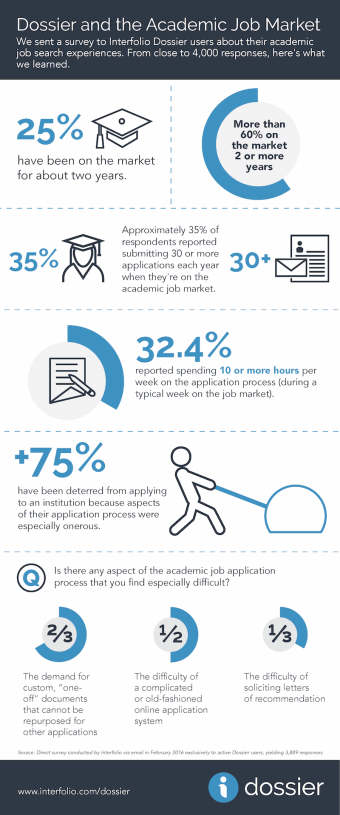
Leonid Osipovich Pasternak – 1892
In the past few years, I realized that one of my guilt-bundles comprises the guilt that I am not participating in the madness of job application season to the requisite level.
Why, you ask? Why wouldn’t you apply for the few academic jobs available?
Here’s why: because of the emotional labor of academic job applications. (Thank you for writing this, Andrea Eidinger.)
I hate to admit this to myself, but I actively avoid job applications. I still do them, but the very thought of going through the creation of a serious, customized document (many hours and days of work that really ought to be paid) renders me a huge lump of emotional garbage.
The cover letter asks me to define myself. Redefine myself. Explain myself. Who am I? What have I been for the past decade? How have I re-invented myself, time after time, in the throes of the horrors of the job market? How have I turned academic tricks simply to remain relevant? How have I performed whatever acts needed, changing, morphing into whatever I was required to become? How have I plastered new posters over my identity billboards? How have I sold out everything I worked to become in the past? Really? I’m supposed to say all that, and then face myself in the mirror, rather than let the earth devour me?
Then you want a resume, or a curriculum vitae, customized to the length your committee desires. Because you want hundreds of us to commit hundreds of hours but you don’t even want to read, skim, or scan through my glorious fourteen page c.v.? Do you realize how many ways there are to organize a c.v.? Do you realize how much detail of font, size, paragraphing, and punctuation is required? You want me to re-do all that?
I get it. You’re on a committee. You want to reduce the work hours you spend. But you expect all of us – who are unpaid, unemployed – to spend those work hours? Just to prove we can perform as workaholics?
And then you want a separate document that says something about how I do diversity. How about just read my cover letter, which you barely skim through anyway?
In this market, it no longer makes sense to demand that hundreds of applicants perform hundreds of work hours to produce trash for the employer’s waste basket simply to make the first cut. The first step should be a simple industry standard of a short cover letter, a former reference letter, and a c.v.
Yes, a former reference letter. Don’t overwork our referees. Please. We go through many seasons of job applications. We need that goodwill. Why would you destroy it? We’re academics: one of the few things we have is our networks and colleagues.
The process of job applications dredges up the depressive memories of dozens of previous job applications over the past decade. The dreams, the excitement, the potential, the promise, – it’s an enormous emotional investment. What will this teaching be like? What are the curricula? The majors? The departments? The new town? The cultural life? The institutional service? The colleagues? Their research agendas? It’s like preparing to get married. You have to imagine an entire life in an entire universe for it to work. You have to imagine being a whole person in that universe.
 While imagining several other universes (because you can’t just do one job application).
While imagining several other universes (because you can’t just do one job application).
And then, just like that, the universe collapses around your head. And you’re supposed to pick yourself up, say thank you for not (reading) my materials and thank you for replying (with a form letter) (eventually, after I begged for a response).
Many potential employers don’t even bother to acknowledge your application. (Too much work, I’m guessing). At times, you end up in toxic and insulting exchanges with potential employers (professors who advocate social and educational justice are no exception at all), poor planning and communication by their administrative staff and committee chairs (while demanding that applicants perform, like circus animals, to perfection).
May I suggest sharing the workload?
In fact, perhaps employers could also be required to do some work, proportional to the labor job applicants perform? Here are some possible tasks that employers could do, prior to soliciting job applications:
- Write a 10 page essay on the toxic dysfunction in the department (with a convenient bulleted list as Table of Contents). Perhaps at least 30% of your applicants might save themselves the bother of applying when they discover that 60% of the department don’t actually speak to each other, and 90% of them take turns shunning each other. Maybe this way, new employees know better how to survive.
- Provide a list of all the different roles all the different department members are expecting the new hire to play (with footnotes and details of all the tasks). This would help her prepare to politically and strategically dodge, bow, and scrape her way through the first 6 years until she gets tenured or (used up and) dumped. Or perhaps this way she knows in advance that she can have no semblance of a life once she lands in her office, and she can weigh the pros and cons of not having a baby versus having your shit academic position. Maybe 20% of your applicants would swipe left when they discover that Full-Professor doesn’t do anything ever, and that he doesn’t even recognize his doctoral student on the day of the defense (True story, guys. And he’s still flying high, using the labor of Fresh Academic Blood on a year-to-year basis).
- Compose a historical narrative of all the passive-aggressive encounters in every department meeting, with warning signs on which professors and administrators to watch out for, vis-a-vis plotting together or with students. Provide a list of persons who must be avoided in the hallways at all costs, as they will try to drag you into their ongoing badal vendettas with the other tenured faculty.
- Along with a clear chart of all department faculty, provide notes as to which one is a only in the job because of his fundraising abilities (his former sports fans donate money to him for the department), and which faculty is there because she is a Collegial-Thug on behalf of FullProfessor (see above), so he can’t legally be traced as the source of Thuggery. (More true stories). This way, the new hire knows and can never be disillusioned about FullProfessor or Collegial-Thug, and can simply fake-smile his way through to tenure.
- Provide a organizational chart, showing which graduate students are really just going to get their Ph.D.’s in return for politicking on behalf of which faculty. For instance, Insecure-But-Tenured Faculty Member who is always looking for dirt on everyone else via graduate students. That way New Hire can avoid crossing Graduate-Student-For-Hire, or can avoid pissing off Insecure-But-Tenured by inadvertently applying plagiarism regulations to said Grad Student.
By providing a bank of such documents, academic departments can cut back on their hiring workload by simply weeding out any potential applicants who don’t have the stomach for skullduggery. Perhaps any real human beings, seeing the writing on the wall, can just tell you to shove your academic appointment up your own a***s. Perhaps such applicants can save their labor, and look for a position where they might work with actual human beings.

This can be applied to many job applications …. Don’t think I’d have the strength to re-enter the work market! 😩